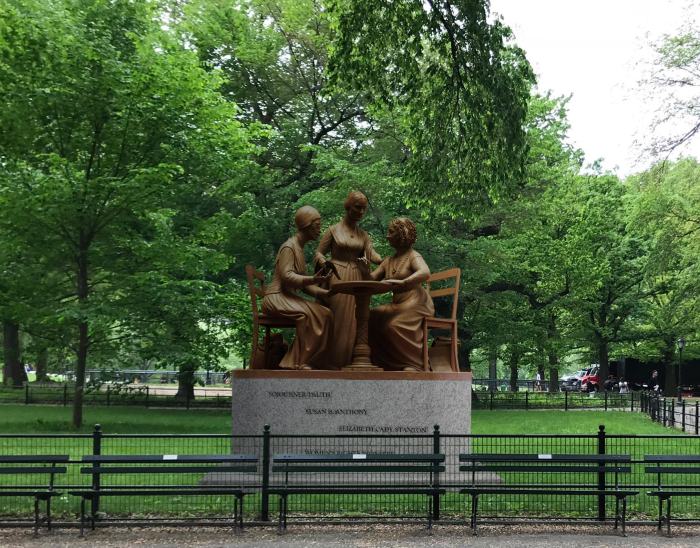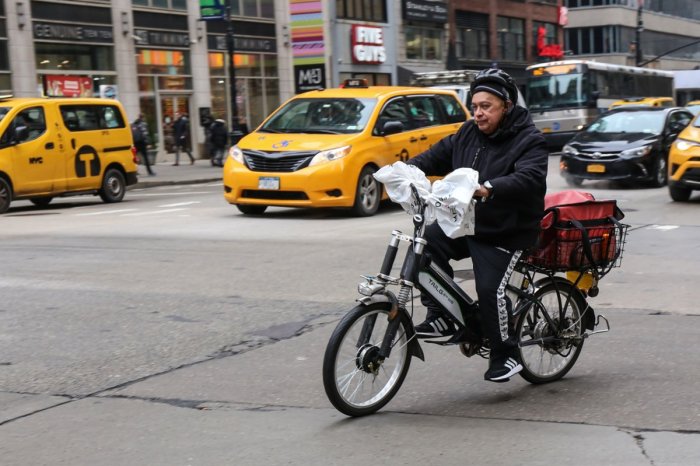Transport Workers Union Local 100 has announced that almost a year since a Central Park carriage horse named Aysha (also spelled Aisha) died suddenly in March 2020 after a medical episode followed by euthanasia, a veterinarian said their were no signs of abuse.
While Aysha’s death reinvigorated a years-old debate as to whether or not allowing horse-drawn carriages along Central Park is humane, or if the animals simply do not belong in an urban setting. TWU Local 100 represents carriage drivers and said the circumstances of Aysha’s death is not evidence for the latter.
“On physical exam, I found [this] horse in good condition, no evidence of struggle, no marks, no fractures and no injuries consistent with abuse or mishandling,” wrote Dr. Camilo Sierra, a veterinarian specializing in horses who performed a post-mortem on Aysha for the city Department of Health.
So why did Aysha die?
Sierra attributed the death to polysaccharide storage myopathy (PSSM), a genetic disease in horses that effects how food is converted to energy and stored in the muscles. According to Local 100, Aysha was a 10-year-old horse who passed two physicals in the 2019 and her condition was subclinical.
“We’re still grieving for Aysha’s loss last year, but we’re also upset that activists continue to lie about her death to inflame the emotions of well-meaning animal lovers and politicians,” Christina Hansen, a spokesperson for the drivers, said.
But according to NYCLASS, who have been advocating for horses in Central Park for years, Aysha should not have died from this condition. Edita Birnkrant, executive director of the organization, contests that PSSM is a common condition in draft horses and veterinarians with NYCLASS believe Aysha would have shown signs of suffering prior to her collapse.
“The potentially devastating effects of PSSM are then preventable in nearly all cases through changes in dietary and exercise management,” Dr. Eileen Jefferson, who serves as the state representative for the Humane Society Veterinary Medical Association, said. “PSSM can exist without symptoms for extended periods in some cases. However, due to the disease’s prevalence, many equine caregivers pursue the simple and inexpensive genetic screen in a horse’s pre-purchase exam. Others suspect PSSM from clinical signs or findings on routine blood panels – the kind Aysha only appears to have had performed at the time of her death. Despite such a high prevalence of this disease in draft horses, there has been no indication that the New York City carriage industry utilizes any of the available diagnostic screens to prevent the potentially excruciating and debilitating effects of PSSM.”
Simple genetic and blood testing that was not conducted is default proof of neglect, Birnkrant told amNewYork.
“Many other horses suffer from underlying, undiagnosed ailments due to the willful neglect and cruelty of the industry and the City agencies that enable the abuse,” Birnkrant said. “That is why we are calling on the City Council to ban the abuse.”
Footage of Aysha’s fall caused a wave of dismay from animal rights activists who have accused drivers and the city of being poor caretakers.
DISTURBING.
This carriage horse from Clinton Park Stables is seen stumbling and unable to straighten their back legs in Central Park earlier today.
After years of doing nothing for carriage horses, will @NYCCouncil finally protect them? cc: @CoreyinNYC pic.twitter.com/EzSgvxoCkb
— julie 🐙 (@jmcappiello) February 29, 2020
Since then the de Blasio administration has mandated the carriages must only remain in the park. City Council has also weighed legislation that would restrict when horses can be out and about in the park, for example when the heat index reaches 90 degrees or higher. It also sets requirements for all handlers to keep the horses cool and comfortable in extreme heat.
Proposed in October 2019, the City Council passed the bill later that month which came with support from Voters for Animal Rights and NYCLASS.



































